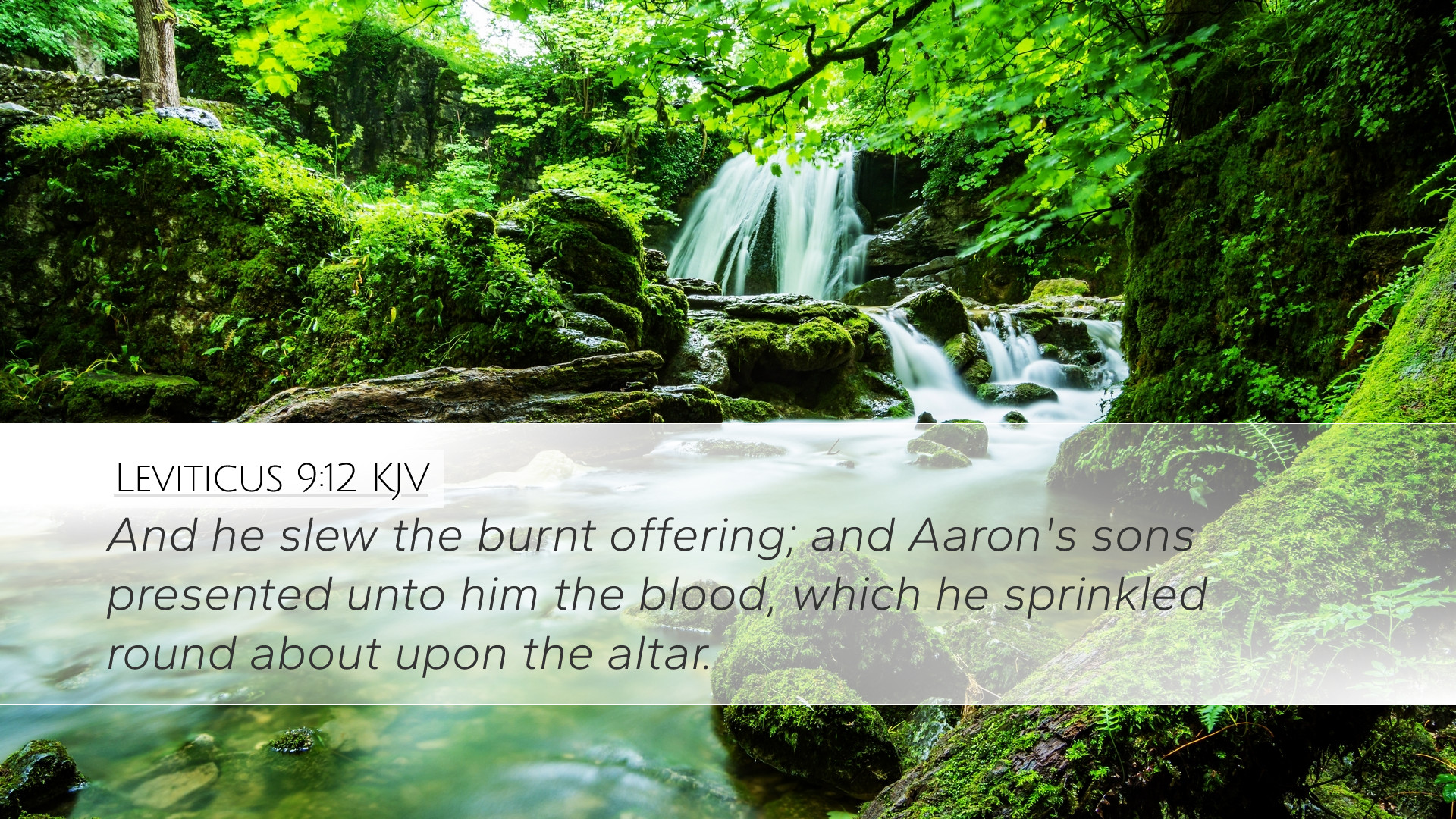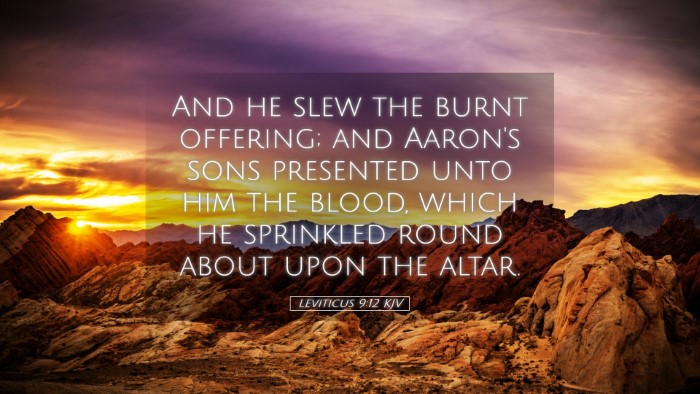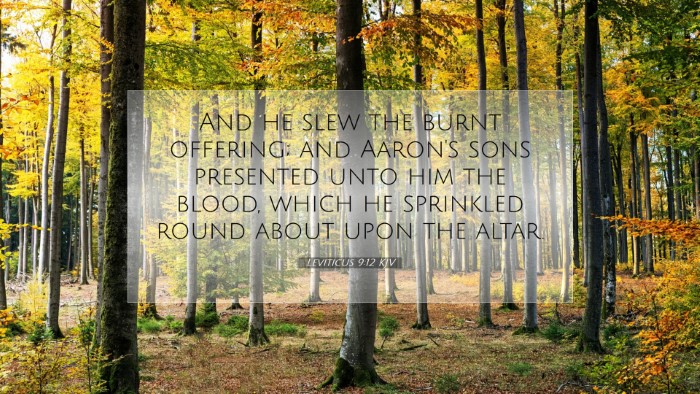Commentary on Leviticus 9:12
Text of Leviticus 9:12 (ESV): "And he killed the burnt offering, and Aaron's sons handed him the blood, and he threw it against the sides of the altar."
Introduction
The verse in Leviticus 9:12 marks a pivotal moment in the establishment of the priestly duties and the sacrificial system instituted by God through Moses. This verse encapsulates the solemnity and significance of ritual sacrifice in the ancient Israelite community. The multifaceted nature of this single act reflects profound theological implications regarding atonement, worship, and the relationship between God and His people.
The Context of Leviticus
The book of Leviticus serves as a manual for the priests and the people of Israel regarding worship and holiness. It outlines the laws concerning sacrifices, purity, and the priesthood, which are essential for maintaining a covenant relationship with God. Understanding this context is crucial for interpreting the sacrificial actions and priestly roles depicted in Leviticus 9:12.
The Significance of the Burnt Offering
1. Meaning of the Burnt Offering: The burnt offering (Hebrew: olah) is significant as it is wholly consumed by fire on the altar, symbolizing complete surrender and dedication to God. Matthew Henry notes that this offering signifies the worshiper's total commitment to God and acknowledges His sovereignty.
2. Atonement and Acceptance: Albert Barnes emphasizes the role of the burnt offering as an atonement for sin, symbolizing the need for purification and reconciliation with God. The act of sacrifice signifies the gravity of sin and the necessity of appeasing God’s justice.
3. Expression of Worship: The act of offering a burnt offering was an act of worship intended to convey devotion and gratitude to God. Adam Clarke further elaborates that the burnt offering serves as a means through which worshippers express their love and reverence for God's holiness.
The Role of Aaron's Sons
The participation of Aaron's sons in this sacrificial act reflects the importance of the priestly lineage in mediating between God and the people. Their involvement signifies the continuity of priesthood and the delegated authority to carry out God’s commands.
- Guidance and Instruction: Aaron’s sons received direct instruction from God about their responsibilities, which emphasizes the importance of adhering to divine guidelines in worship.
- Symbol of Guidance to the People: The actions of the priests were instructive for the community, demonstrating how to properly approach God in worship.
The Symbolism of Blood
The act of handling the blood of the burnt offering is critically significant. Blood in the sacrificial system represents life and serves as the means of atonement. The thrusting of blood against the altar fulfills the requirements of the covenant as both a sign of God's acceptance and a reminder of the cost of sin.
- Hebrews and Sacrifice: The New Testament book of Hebrews (Hebrews 9:22) articulates the principle that “without the shedding of blood, there is no forgiveness of sins,” linking the Old Testament sacrificial system to the ultimate sacrifice of Christ.
- Symbol of Cleansing: As indicated by Clarke, the sprinkling of blood also symbolizes the purification of the people, indicating that they are now fit to stand before a holy God.
Implications for Today
The sacrificial themes seen in Leviticus 9:12 resonate deeply within contemporary Christian worship and theology. Although the physical sacrifices of the Old Testament are no longer practiced, the spiritual significance remains profound.
- Christ as the Fulfillment: Today's believers view Christ’s death as the ultimate fulfillment of the sacrificial system. He is the perfect Lamb whose sacrifice brings true atonement and reconciliation with God.
- Call to Worship: The concept of sacrifice has transitioned from animal offerings to the offering of ourselves in worship (Romans 12:1), emphasizing that true worship is a matter of the heart.
- Living Sacrifices: Paul’s admonition to present our bodies as living sacrifices continues the call for commitment and dedication as exemplified in the burnt offerings.
Conclusion
The act of killing the burnt offering in Leviticus 9:12 is a potent symbol of worship, atonement, and the sacrificial nature of redemption. Its implications extend far beyond the confines of the tabernacle worship; they invite modern believers to reflect upon the profound nature of God’s redeeming work through Christ. As pastors, scholars, and students of the Word delve into this text, may they uncover the rich layers of meaning that reveal God’s character as both holy and merciful.


